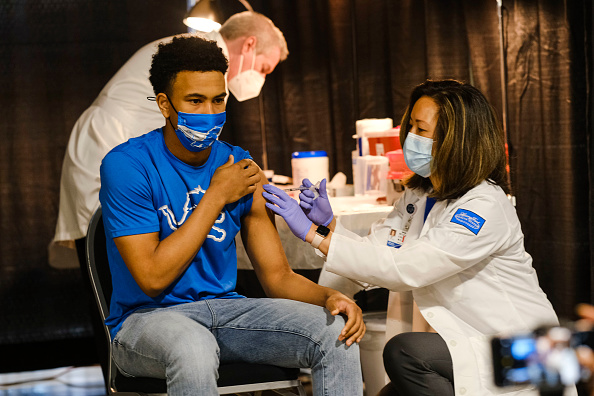Despite mounting evidence of dangerous side effects of COVID-19 boosters for younger populations, public institutions continue to implement mandates requiring multiple jabs.
The under-age 30 population has been particularly affected, with one study indicating seven times the normal rate of myocarditis in 16- to 24-year-old young men after their second dose of the Pfizer vaccine.
The increase in inflammation of the heart muscle among the vaccinated is unprecedented, says Jane Orient, M.D., executive director of the Association of American Physicians and Surgeons, and an advisor to The Heartland Institute, which co-publishes Health Care News.
“Everyone who gets the vaccine incurs the risk of myocarditis,” said Orient. “We were never seeing this many cases of myocarditis before the rollout of COVID-19 vaccines.”
Why Vaccinate Young People?
The U.S. Food and Drug Administration (FDA) and the Centers for Disease Control and Prevention have promoted boosters for young people, with the FDA expanding emergency use authorization of the Pfizer shots for children as young as five.
Given the rise in myocarditis from the vaccines and the lower risks of COVID to the young, no one has explained why it is necessary to vaccinate them, says Paul Elias Alexander, Ph.D., an epidemiologist, former World Health Organization consultant, and senior adviser to the U.S. Department of Health and Human Services in 2020 for COVID-19 response.
“This is the data and science,” said Alexander. “No public health official has yet made the case as to why these vaccines are needed in children and young people,” said Alexander.
‘Data Is Being Cherry-Picked’
Science is not currently driving most COVID policies, says Marty Makary, M.D., a professor at Johns Hopkins University, who testified before Congress in December and spoke out against the government’s policy approach to the pandemic in a Wall Street Journal commentary published on December 21.
“Data is being cherry-picked to support predetermined agendas, while the roles of natural immunity and life-saving therapeutics are being sidelined,” wrote Makary.
The push for boosters, “came over the objections of the agencies’ own experts,” wrote Makary.
“The last vote by FDA advisors, in September, rejected the proposal 16-2,” wrote Makary. “FDA leaders revisited the proposal in November and simply bypassed the experts. So did the CDC, whose advisers had rejected boosters for people not at high risk.”
Impact on Treatment
Lack of data gathered after COVID vaccinations is having an impact on doctors’ ability to care for those who experience adverse reactions, says Orient.
“We have done no studies on the asymptomatic cases of myocarditis, we aren’t measuring cardiac enzymes or heart ultrasounds [after vaccinations],” said Orient. “In one case myocarditis was discovered in a young woman after a vaccination, incidentally on an ultrasound machine, and was treated. How many people are going undiscovered and untreated and may go on to do some exertion, when they should be resting for several months?”
Policymakers are ignoring the evidence, says Orient.
“It is incredible that we aren’t taking a cold, hard look at these results,” said Orient. “We have a massive human experiment and we’re not even collecting good data. We don’t have any stopping point. It’s completely unethical. It is reckless and irresponsible.”
Ashley Bateman (bateman.ae@googlemail.com) writes from Virginia.






















 EV Dangers Daily Becoming More Evident...
EV Dangers Daily Becoming More Evident...
[…] post Despite Adverse Reactions, Government Pushes Boosters on Teens appeared first on Heartland Daily […]
[…] By Ashley Bateman | Heartland […]